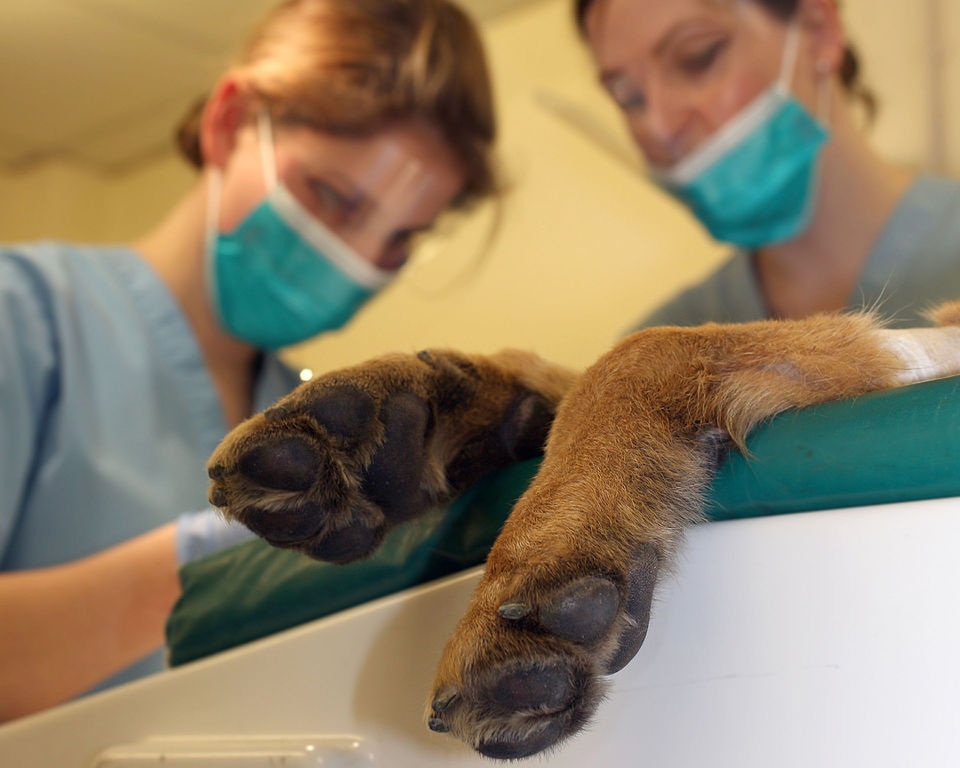Lawn Chemicals That Pose Dangers for Pets
BY JOHN FREEDMAN | OCTOBER 24TH, 2019 | LAWN CAREA fenced-in backyard brings a lot of freedom to pet owners. Just open the door and let them out or install a small pet-door so they can come and go as they please. But with that freedom comes a dilemma. The pesticides, herbicides, and fertilizer that provide you with a green lawn can make dogs and cats sick, cause bladder cancer, or even kill them. So how do you keep your dog safe and maintain your lawn care?
Hazardous Lawn Treatments
Your yard is the first thing people see when they come to your home. An emerald-green, thick lawn makes your property stand out and — admit it — makes you proud. When your grass gets sick, you treat it. Sometimes with chemicals. If you have pets, those chemicals can be dangerous. Dogs don’t just walk in your lawn. They roll in it, eat plants and blades of grass, and put their muzzles in it, sniffing around. When they lick themselves, chemicals on the lawn go straight into their system. So anything that’s on your grass gets on, and in, your dog (cats, too). Some of the most common lawn treatments are some of the most dangerous for pets.
Dangerous Lawn Chemicals
- Disulfoton – a toxic pesticide used to treat rose bushes. It can cause vomiting, diarrhea, and seizures, even death.
- Metaldehyde – used in slug and snail bait. Metaldehyde can cause seizures, tremors, and even kill your pet.
- Cocoa mulch – made from the hulls of the cocoa bean. Like chocolate, this type of mulch contains theobromine, a chemical toxic to pets. Cocoa mulch causes drooling, a rapid heart rate, tremors, and dark red gums.
- Organic fertilizer – Most organic lawn fertilizers include bone meal, fish meal, and other tasty items that attract pets. Even these “natural” fertilizers can cause vomiting, obstructions, and pancreatitis.
Some of these chemicals lawn care companies use are mixed with bone meal and blood, so dogs and cats love the taste. Metaldehyde comes in pellet form and looks like dog food. It’s also flavored with molasses to attract snails. Unfortunately, it also attracts your dog.
Organophosphates are organic compounds found in insecticides. They can harm an animal’s brain and nervous system, and cause gastrointestinal irritation. Dogs are exposed when they eat a plant that’s been treated or inhale the chemicals. Warning signs include paralysis, weakness, trouble breathing, and excessive salivation.
How to Handle It
Avoiding these items is best, but that’s not always possible. The ASPCA’s Animal Poison Control Center says if you must use them, there are steps you can take to keep your pets safe.
6 Ways to Keep Pets Safe From Lawn Chemicals
- Keep pets away from treated areas for as long as possible (at least 48 hours).
- Try to keep your dog from eating the grass for several days.
- Water fertilizer off the blades so it goes into the soil.
- Read the warning labels on the product and be aware of its toxicity to animals.
- When you apply chemicals, particularly when spraying in the garden, be aware of the drift and cover all nearby items.
- Store leftover product on high shelves, out of reach.
When it’s time to clean up, go to a designated area so excess pesticide and wash water don’t contaminate an animal’s drinking water. Pesticide education specialist Cecil Tharp of Montana State University Extention says, “Keep drainage from cleaning sprayers out of water supplies and streams and do not let animals into areas where sprayers are cleaned.” If a dog drinks from a contaminated puddle, it will get sick.
Treating a Poisoned Pet

If your pet is showing signs of poisoning, like vomiting, seizures, muscle tremors, excessive salvation, trouble walking, or trouble breathing, get them to the veterinarian ASAP! You can also call the ASPCA’s Animal Control Center. Don’t induce vomiting unless you have explicitly been told to do so. Some toxins can cause even more damage if the pet throws it up. And never give a home remedy without first speaking to the vet.
If you know what toxin your pet was exposed to or you have a sample, take it with you to the vet. This will help the doctor better treat the animal.